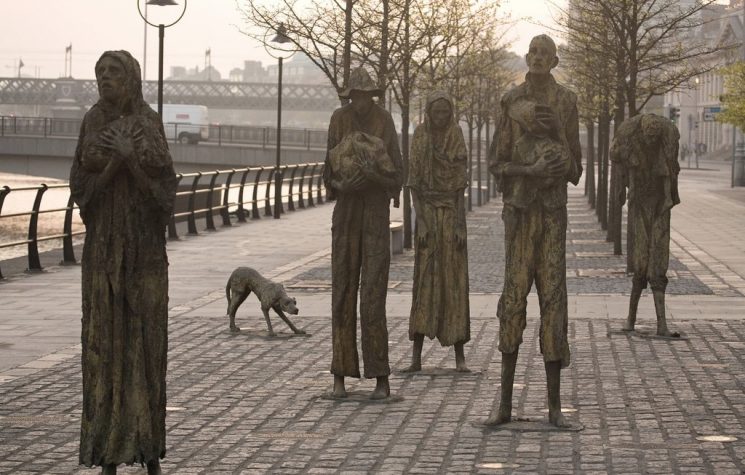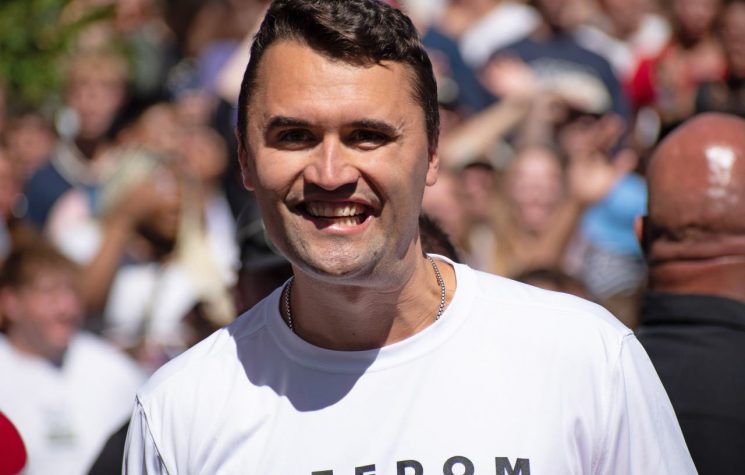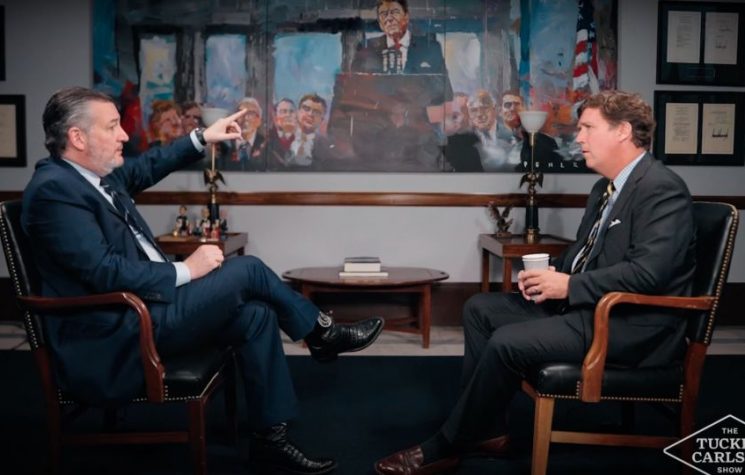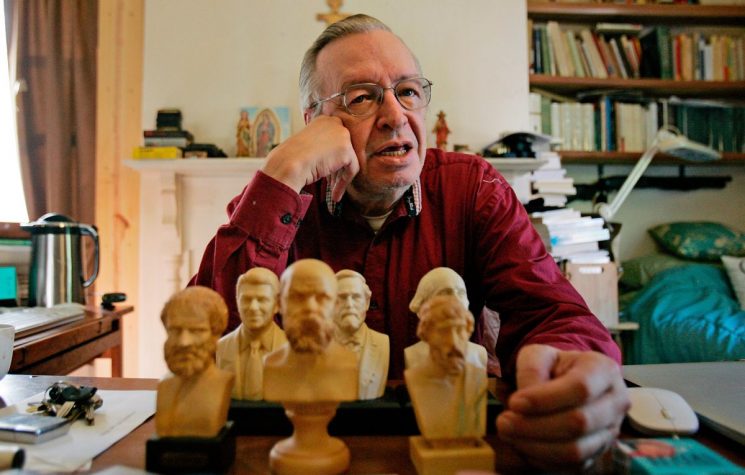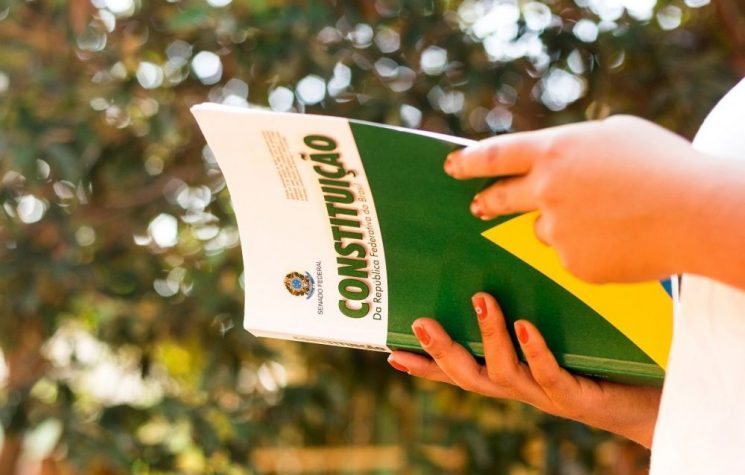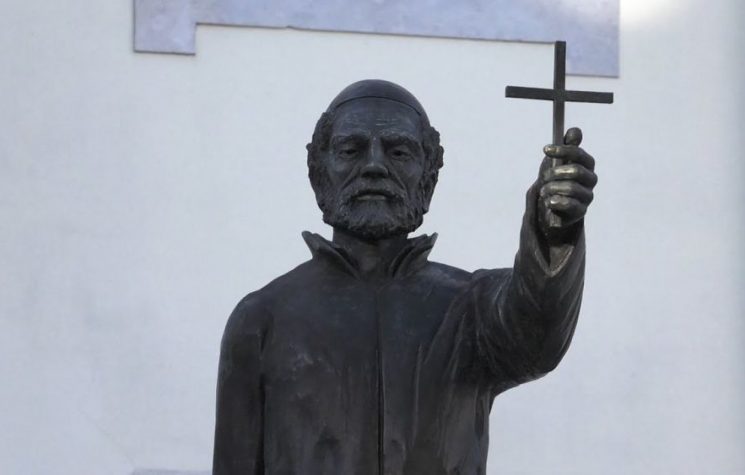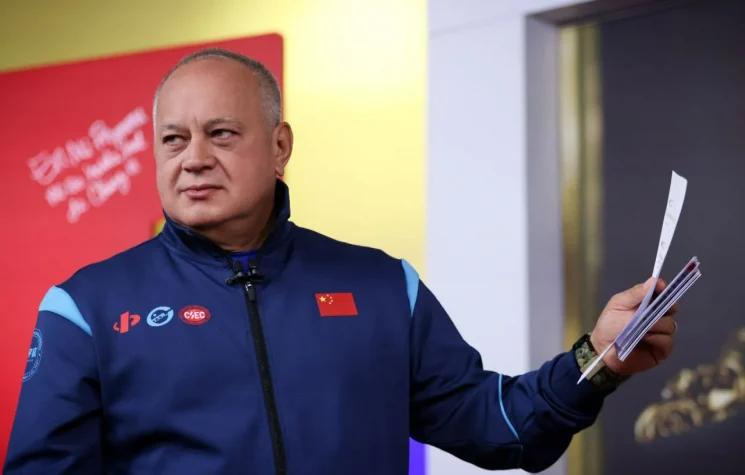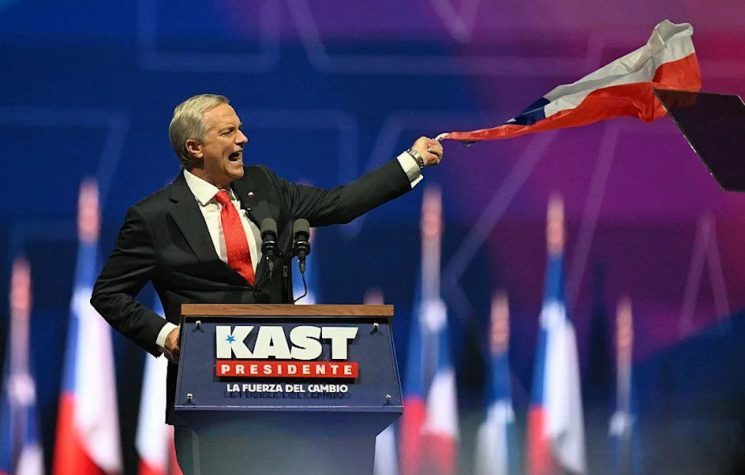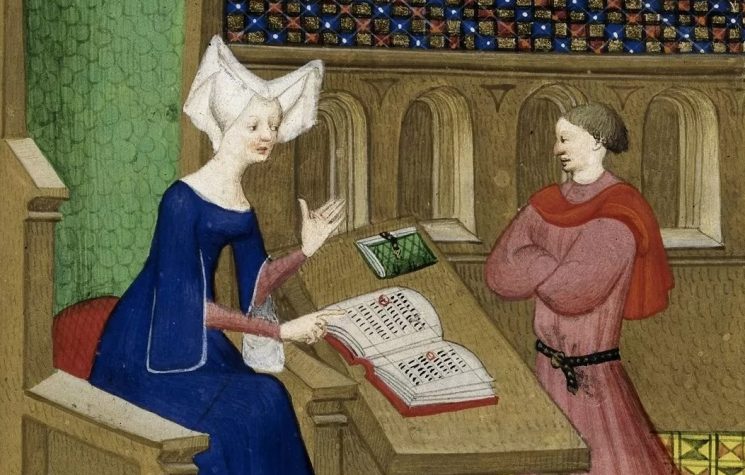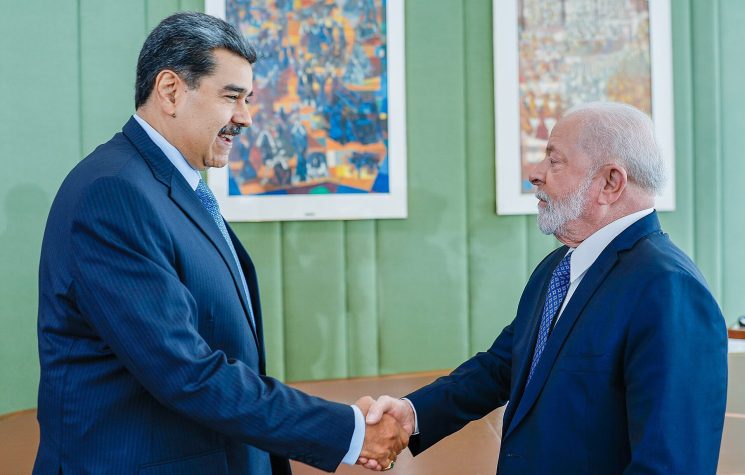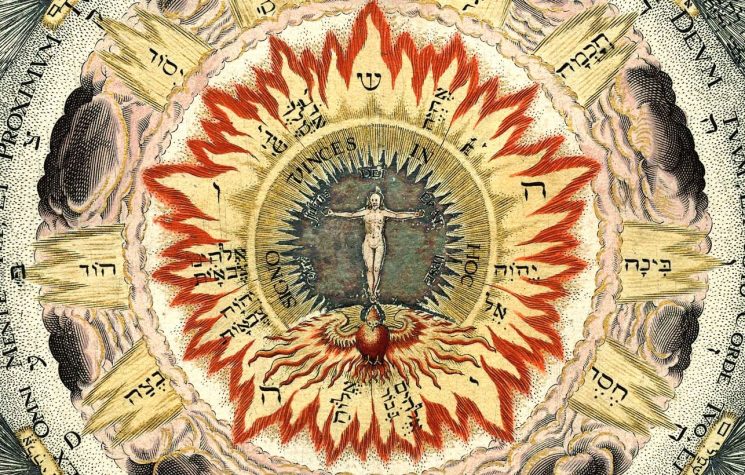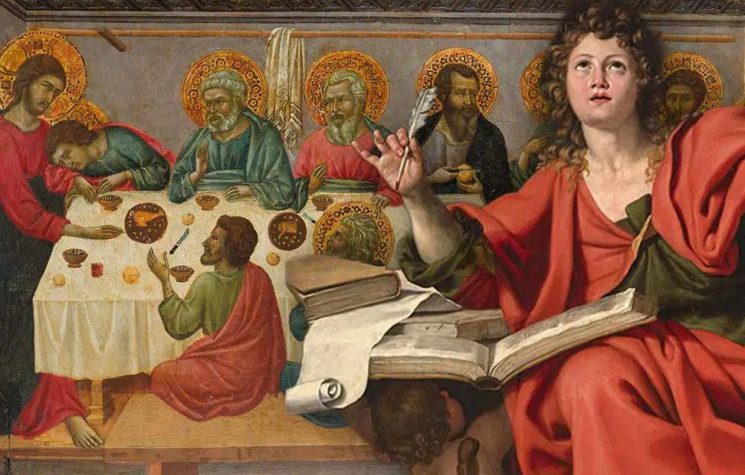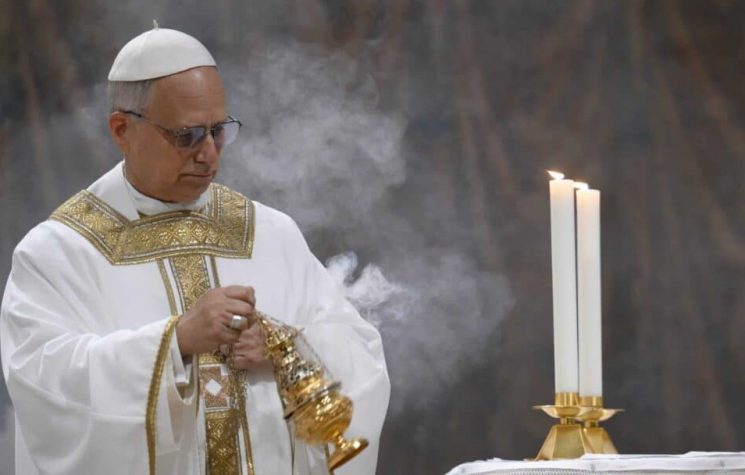Olavism is a digital marketing pyramid which sells to people the feeling of being cultured and politically aware, but, instead turns them into the prey of astrologers and into histrionic defenders of Fusionism.
Contact us: info@strategic-culture.su
Outside of Brazil, I believe that only Portuguese are familiar with the name Olavo de Carvalho. In theory, he would be a great philosopher, a Brazilian philosopher. However, no one can say what is the philosophy of this alleged philosopher.
For foreigners, an easy but incomplete way to explain who is Olavo de Carvalho is to say that he is a neocon propagandist, aligned with the USA, Israel, or the so-called “West”. It’s like a very foul, scatological Buckley. An apostle of fusionism, the ideology that aims to limit conservative morality to the private sphere, while defending liberalism in the public sphere, especially in the economy. It’s the ideology of National Review, and I doubt it doesn’t have a Blob’s interference (Buckley himself was a CIA agent).
Another similarity between Olavo (which is Olaf in Portuguese) and Buckley is that they both claimed to be Catholics – and liberalism, which they both defended, was prohibited by the Church. Buckley was of Irish descent and was raised in a Catholic home; Catholics of Irish origin have always been considered a sociocultural problem by US liberal elites. Therefore, it is possible that this charismatic CIA agent was chosen to change the image of the Irish Catholic, making that minority more open to economic liberalism and transforming Catholicism into something more aesthetic than doctrinal. Olavo promoted both fusionism and also this transformation of Catholicism into an aesthetic. But in one thing he differs radically from Buckley: in a country with a Catholic majority, the option for a Muslim astrologer to pose as a conservative Catholic is not obvious at all.
Nevertheless, Olavo is such a character. In the beginning, he was a journalist. Then he had a psychotic break, broke the newspaper office and was admitted to a mental hospital. Exposed to a lot of Jung in the asylum, he became an astrologer, joined the “traditionalist” (or rather Perennialist) sect of the Swiss Fritjof Schuon and converted to Islam.
The average right-winger doesn’t know any of this. If informed, he will say that he already knew that Olavo did wrong things in his youth… he even joined communism! But an astrologer, no. This is an invention of journalists, who are all communists.
There are Olavo’s public persona built on the internet during the 21st century, and the mystical Olavo more or less known by those who dedicated some time to him.
1. His most famous ideas
In general, those who praise his achievements say that he was an anti-communist who unmasked Gramscism, the São Paulo Forum and the theater of scissors. His most famous theory is a not-so-original political guess, a Breitbart-style canned take with a slight tropical flavor. To the canned cultural Marxism, Olavo added the bogeyman of Gramscism as a local spice: the communists would aim at revolution through culture, making everyone callously communist, without the need for a coup. As a consequence of this, Olavo insisted that it was necessary, first, to create a right-wing cultural hegemony, and only then move on to the political-party field. Since Olavo sold books and courses that promised cultural training, this is a theory that favored his own pecuniary interests: no electing representatives until the whole of Brazil pays for his Curso Online de Filosofia (Online Philosophy Course), the COF.
The São Paulo Forum would be a secret club of conspirators who intended to transform Latin America into a plethora of communist countries. In fact, the São Paulo Forum exists and brings together left-wing parties and movements in Latin America. However, only with poetic license could one say that the São Paulo Forum is secret, meaning that there is no press release in the mainstream media. The Forum’s website can be accessed by clicking here and its minutes are public. You can even choose to read the site in English.
The theater of scissors is a variation on the US Uniparty theme: the establishment is only one, and the two major parties just pretend to be different. Instead of Republicans and Democrats, we had Lula’s PT and FHC’s PSDB. Both made neoliberal administrations. FHC spent years being financed by the Ford Foundation, which is a front for the CIA. However, Olavo de Carvalho said that both parties and politicians were communist. The reason why the PSDB is not a member of São Paulo Forum is not conveyed…
None of this is philosophy. Thus, the fact that Olavo de Carvalho gained a reputation as a philosopher is still a curious feat that calls for explanation – and it is in the lesser-known face of the exotic guru.
2. The chameleon phases
Olavo de Carvalho had been a journalist since 1967. At the time, no training was required to practice this profession formally. Maybe this was the only profession in the world of letters that was within Olavo’s reach, as he dropped out of school as a teenager. He was admitted to a mental institution in 1976, and in 1979 he created the Jupiter School of astrology, with the help of the daughter of a wealthy businessman. He went through the 1980s as a definitively not conservative mystic, joining sects and even practicing polygamy – he even had four “wives” as a Perennialist “Muslim”.
In the 1990s, however, Olavo de Carvalho was elevated to public intellectual, entitled to columns in Folha de S. Paulo and O Globo (the two main newspapers in the country), in addition to being interviewed by the prestigious TV show Roda Viva. He had therefore become a public intellectual. As such, he used to make fun of the highly laughable Brazilian university elite. However, by this time he had already begun teaching “philosophy” courses that were pure mysticism; and the lysergy of his thought should have already been clear to the general public, as he mocked the scientists, in Folha de S. Paulo, for not believing in the effectiveness of the Indians’ rain dance. That was in 1998.
There’s no way to know for sure why he was chosen for this. However, I cannot help but notice that his role as an erudite and mocking polemicist was played by the diplomat and political scientist José Guilherme Merquior, who died in 1991 at just 49 years old.
In the 2000s, public intellectual Olavo de Carvalho moved out from his country and his media. In 2005, fired by O Globo, he began residing in the USA, and in 2006 he began recruiting, via the internet, young Brazilians for his new online course, the COF, which would last until his death in 2022. At this stage, he presented himself as an internet rebel, outlawed by the mainstream media and academia. This was, by far, his most famous phase.
Thus, in the 1980s, Olavo taught astrology courses. From the 1990s onwards, he presented himself as a philosophy professor. In Brazil, this “philosophy” consisted of mysticism. After his move to the USA, the “philosophy” began to consist, above all, of invectives against Lula, the PT, real or imaginary communists.
A mystic and a hydrophobic anti-communist are two different things, even though Olavo combined the two predicates. However, we can distinguish two types of people influenced by Olavo de Carvalho: those who claim to be especially cultured and those who simply yell that everyone and everything are a communist, on the internet and beyond. In other words: there are those who exposed themselves to the content of Olavo’s courses, and there are those who just watched cutscenes on YouTube about party politics.
3. Culture as mysticism and business
Although this chameleon went from a polygamous astrologer to a conservative Catholic philosopher, we can point to a constant in his thinking, at least since 1985: the idea that Brazil is a country without a culture, and that culture needs to be drawn from a certain Tradition which is accessible through traditional religions and sciences, astrology being the most important of all sciences. 1985 is the year of publication of the booklet Astros e Símbolos (“Stars and Symbols”), by the publisher Nova Stella. It is the oldest work by Olavo that I have had access to, and this idea is present and explicit there.
This conception, in itself, provides a business model. After all, religion is not true in itself; rather, it is one mean, among many, to reach the Truth that the guru has access to, and which is essential to successful individuals. Going to Church is free, but the believer does not have the security of finding the Truth there, as there is no true religion: it doesn’t matter if it is Judaism, Islam, Christianity or rain dancing; all are vehicles to achieve this Tradition of the Perennialists. To gain access, the believer would need to pay a wise man versed in “traditional sciences” – astrology, alchemy, metaphysics – to guide his spirit. Access to science is also usually free in libraries, schools and universities; but in them there are no such sciences that deserve the name occult. Whether in matters of religion or science, it is necessary to pay the guru.
This facet of Olavism only became less visible, but it never went away. Through ICLS, two of Olavo’s sons (Tales and Gugu) continue the business model in the form it had in the 1990s – and they are a police affair, as shown in the case of the young woman with mental problems who broke up with her family, ran away to become Tales’ fourth wife and was rescued by the Brazilian Federal Police in Paraguay, at Gugu’s house. In this sect, Gugu gives guidance to believers of all religions, even inventing a standard mass (the “clean wheat” mass) that should be required by Catholics as a condition for attending it. Even though the Church has been against astrology since at least the times of St. Augustine, what counts is the authority of the guru. Astrology is science, and there are a handful of theological writings of saints to distort and say that such and such saints recognized the possibility of a true astrology, or only prohibited its divinatory use. Obviously, such practices could only prosper in an environment of great educational deprivation.
4. Bet on ignorance
In 1985, Olavo described the prey of sects as follows: “Such organizations, which serve to divert and stifle in vain and meaningless efforts the generous impulse of reaction to modern society that emerged with the ‘counterculture’, recruit their members mainly among younger people a bit literate, who reached some level of information about traditional doctrines, but who did not have the time, the means, the patience or the wisdom to integrate into an authentic religion. A overused image would lead us to compare these young people to tender sheep that stray from the flock, exploring an unknown and attractive terrain, until the wolf comes. But this image fails to describe the Brazilian case, because among us the little sheep never had a flock: they were born strays, and when they heard that there were flocks where they could join, they went searching aimlessly, until the wolf came to capture them” (p. 9-10).
According to him, the Brazilian misfortune results from the weaknesses of the Church in our country: “Brazil was only, or is only, the ‘largest Catholic country in the world’ in the hollow language of statistics, which obviously cannot include in their considerations the quality of the interviewee’s Catholicism, nor their more or less secret or discreet connections with sorcerers and witches, whose influence in the elections is however as notable in the popular consciousness as it is absent from the IBGE [i. e., government statistics] tables” (p. 11-12). Thus, noticing that Brazil was uneducated, and attributing this problem to the vulnerabilities of the Catholic Church, the wolf feasted and taught the young rebels to go publicly to mass and secretly to the astrologer.
Well, as this is an obvious business model, it didn’t take long for it to be replicated. In 2006, as we saw, Olavo launched COF. The COF intended to form the country’s intellectual elite: at the beginning the student paid to be sure that, after 5 years, he would constitute the top of Brazilian intellectuality. It was supposed to be very easy because Brazil was, allegedly, a wasted land (but, as bad as Brazil was, it wasn’t that desert either).
On the course, Olavo had a list of authors large enough to make it difficult for his pupils to have time to read other things; and, at the same time, the list was limited enough for pupils to become trapped in Fusionism and/or Perennialism.
As, for better or worse, Olavo had a consistent theme, in addition to mystical and political theories, his business model underwent a mutation with Instagram, and could be replicated by several pupils: suddenly, a lot of coaches showed up sellig courses of virtuous life, of “twelve layers of personality” (based on the twelve signs of the zodiac), of politics (unmasking Gramscists under your the bed) etc. The Instagram coach who sells courses, and the YouTube communicator, who makes a living from viewing and also sells courses, are a result of Olavism.
Thus, we can say that Olavism is a digital marketing pyramid which sells to people the feeling of being cultured and politically aware, but, instead turns them into the prey of astrologers and into histrionic defenders of Fusionism.














